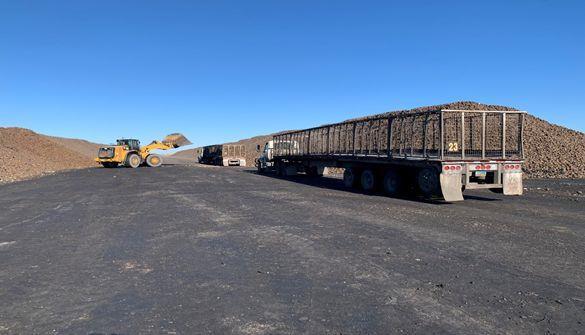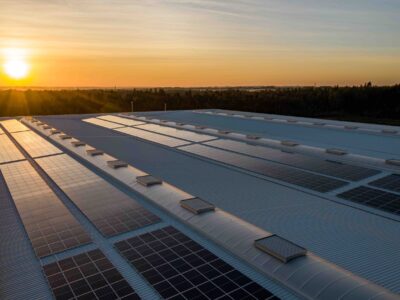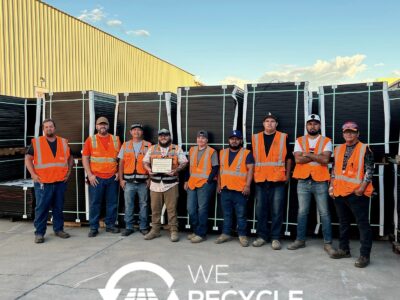When discussing new and emerging technologies and what they can offer the world, one interesting wrinkle is how tightly intertwined self-driving vehicles are with sustainability. There are a couple of reasons for this common belief. For one, autonomous cars and renewable technologies are two distinct indicators of what we conceive “the future” to be like, right up there with flying cars and colonies in outer space. The second, and more immediate reason, is the existence of innovators like Cruise, Zoox, and Nuro, which are all building and deploying autonomous EVs to move people and goods around on U.S. roadways without a drop of gasoline.
Although autonomous driving technology isn’t necessarily a planet-saving technology on its own, it does bring significant advantages to help improve general welfare. An example is a newly announced partnership between Kratos Defense & Security Solutions and the Minn-Dak Farmers Cooperative (MDFC). Per the agreement, Kratos will work to retrofit a fleet of MDFC trucks with autonomous driving technologies. Citing a lack of available regional drivers, the collective is looking to ensure a stable chain of goods that could otherwise risk supply-side turbulence. The partnership gives MDFC a notable boost in the output of in-demand vegetables, including the sugar beet.
The collaboration represents the merging of several organizations with expertise in innovation, supply chain management, and sustainability in AgTech. As one of the largest sugarbeet cooperatives in the country, MDFC worked with Grand Farm, an AgTech facilitation-based nonprofit, to find a partner with the requisite experience in developing self-driving hauling vehicles. The company selected Kratos for its prowess in developing “leader-follower” technologies.
Once implemented into MDFC sugarbeet trucks, the autonomous system will organize the self-driving cars into a path behind one human-driven leader. The trucks will follow in a tight formation as they travel from the piling station to the processing plant.
Once implemented, the Kratos assistance will allow the MDFC to kill two, three, or even four birds with one stone. The relatively dangerous nature of the job and high licensing requirements has left sugarbeet farmers in and around North Dakota without enough infrastructure to support seasonal harvests to the fullest extent.
In addition to fixing the transportation problem, Kratos’ “leader-follower” system provides scalable transport in a much safer form than seen in a similar fleet of regular trucks. It also saves money for the farmers who might otherwise have to subsidize part of the salary costs and increases the fuel savings by reducing erroneous or inefficient movements. These seemingly small changes will make a major impact in helping a regional sugarbeet industry that requires as many as 50,000 deployed trucks per day during peak harvesting seasons.
On the idea that Kratos might be taking an unexpected leap from national defense to the domestic agricultural sector, the company is adamant that such a move was entirely in line with its corporate ethos: “Ensuring the agriculture supply chain using driverless technology directly aligns with our core company objectives,” said Maynard Factor, vice president (VP) of business development at Kratos. “ As the world advances and unmanned vehicle systems continue to solve a multitude of workforce, cost, and safety challenges, we are committed to being a significant solution provider across the spectrum of this large and growing market area.”
To MDFC Co-VP of Agriculture Mike Metzger, the partnership has already paid dividends by giving farmers the peace of mind in knowing their harvests will be accounted for long into the future. “It’s no secret that there is a gross shortage of commercially licensed truck drivers, especially in rural areas like ours,” said Metzger, who sees Kratos’ systems as the best way for the industry to progress sustainably. “The deployment of driverless vehicle technology will undoubtedly help alleviate these labor shortages and improve the overall safety and efficiency of our fleet.”





